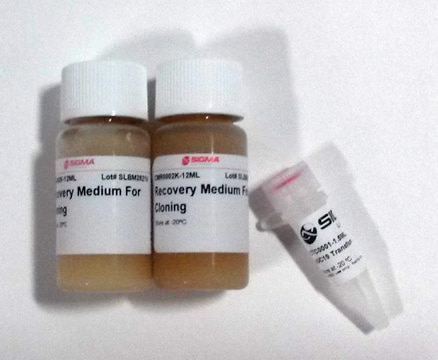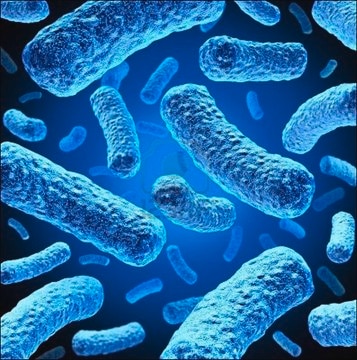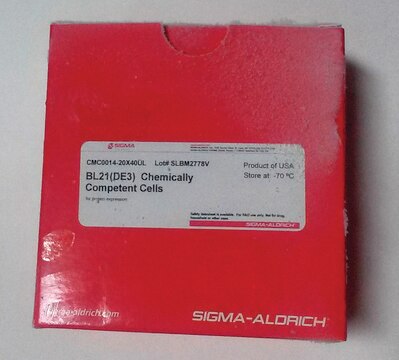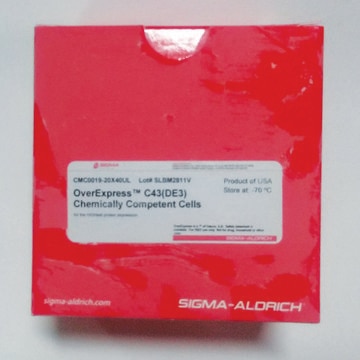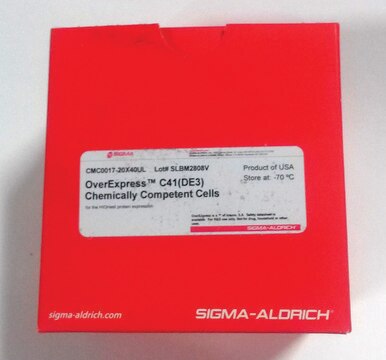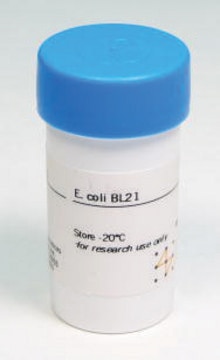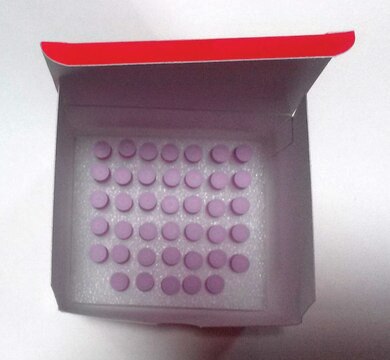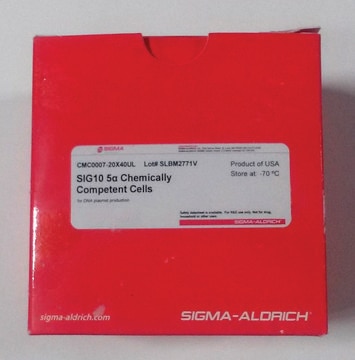CMC0015
BL21(DE3) pLysE Chemically Competent Cells
Escherichia coli, rod shaped
About This Item
Recommended Products
product name
BL21(DE3) pLysE Chemically Competent Cells, for protein expression
biological source
Escherichia coli
grade
for molecular biology
growth mode
adherent or suspension
morphology
rod shaped
technique(s)
microbiological culture: suitable
cell transformation
competent cell type: chemically competent
transformation efficiency: ≥1 x 107 cfu/μg
shipped in
dry ice
storage temp.
−70°C
Related Categories
General description
These cells have a higher level of repression by T7 lysozyme, offering the greatest control over expression of inserts.
Genotype
F – ompT hsdSB (rB- mB-) gal dcm (DE3)
Features and Benefits
- a transformation efficiency of >1 × 107 cfu/μg.
- economical prices
- offering superior value for everyday protein expression work.
Components
- BL21(DE3) pLysE chemically competent cells
- pUC 19 transformation control DNA
- recovery medium for expression
related product
wgk_germany
WGK 3
Certificates of Analysis (COA)
Search for Certificates of Analysis (COA) by entering the products Lot/Batch Number. Lot and Batch Numbers can be found on a product’s label following the words ‘Lot’ or ‘Batch’.
Already Own This Product?
Find documentation for the products that you have recently purchased in the Document Library.
Customers Also Viewed
Articles
Bacterial transformation is a process of horizontal gene transfer by which some bacteria take up foreign genetic material (naked DNA) from the environment. Bacteria that can take up free, extracellular genetic material are known as competent cells.
Related Content
BL21 Chemically Competent Cells are provided in aliquots of 80 μL sufficient for two transformation reactions of 40 μL each. Transformation is performed by heat shock at 42 °C, followed by incubation on ice.
Our team of scientists has experience in all areas of research including Life Science, Material Science, Chemical Synthesis, Chromatography, Analytical and many others.
Contact Technical Service